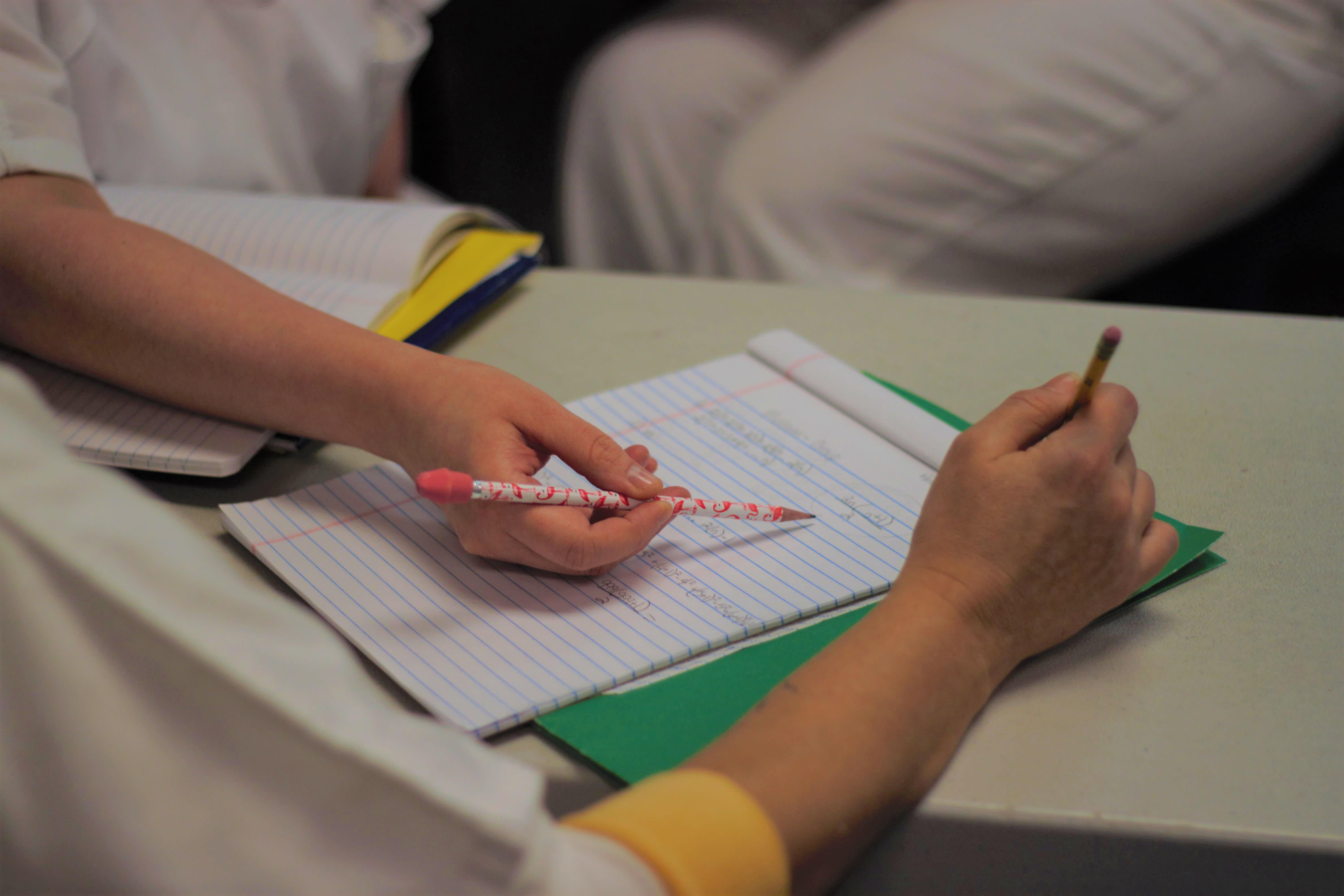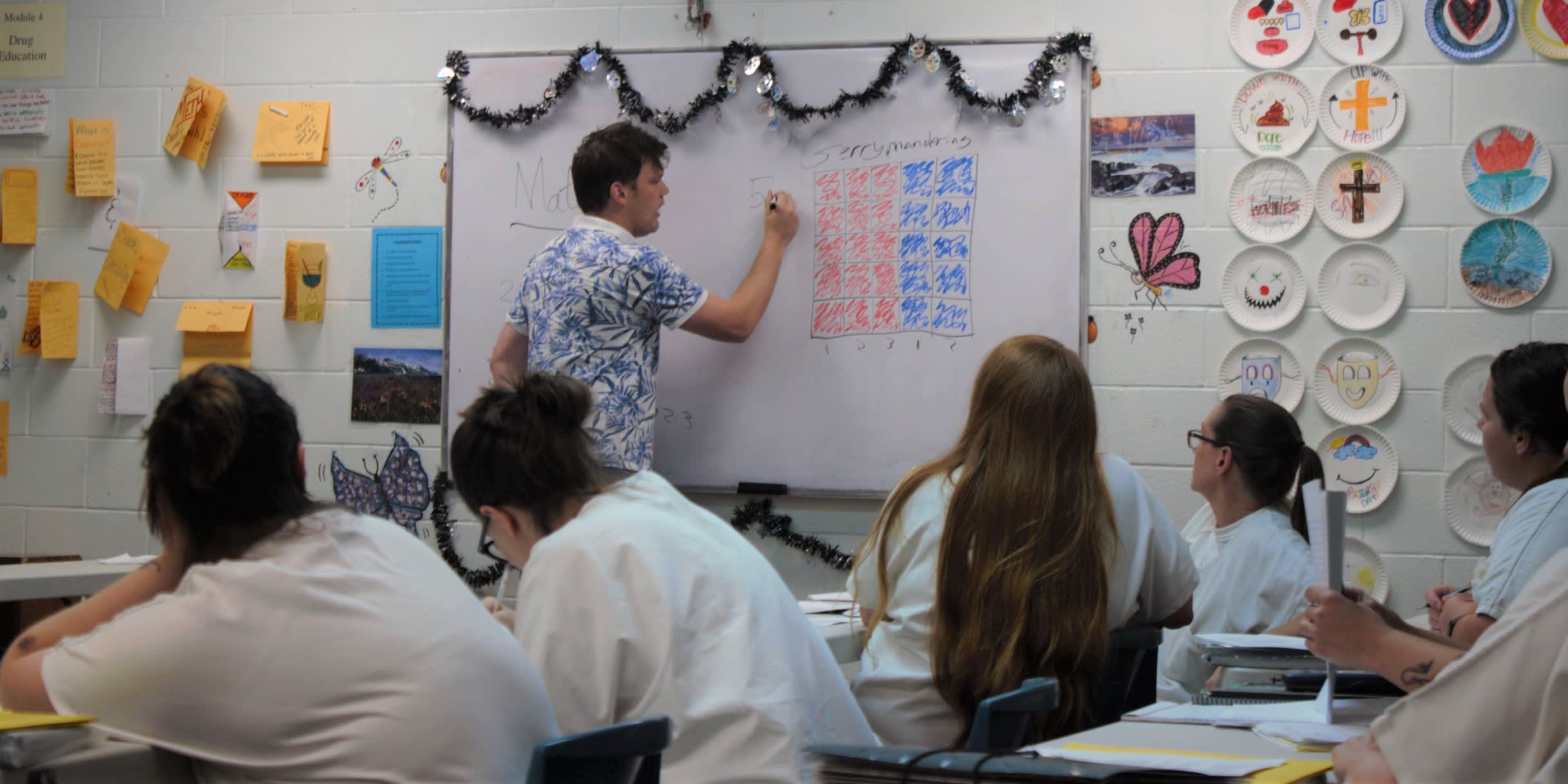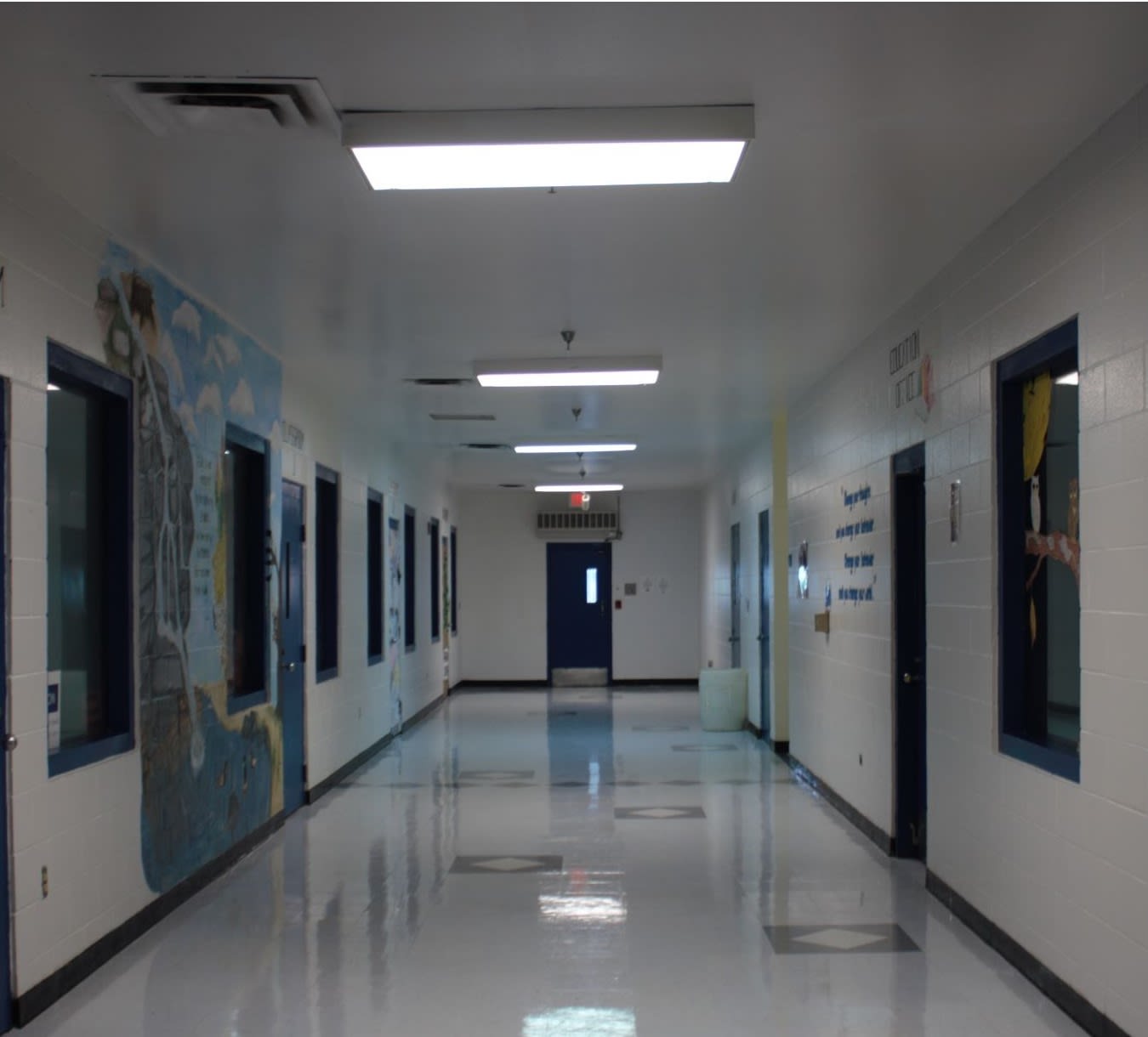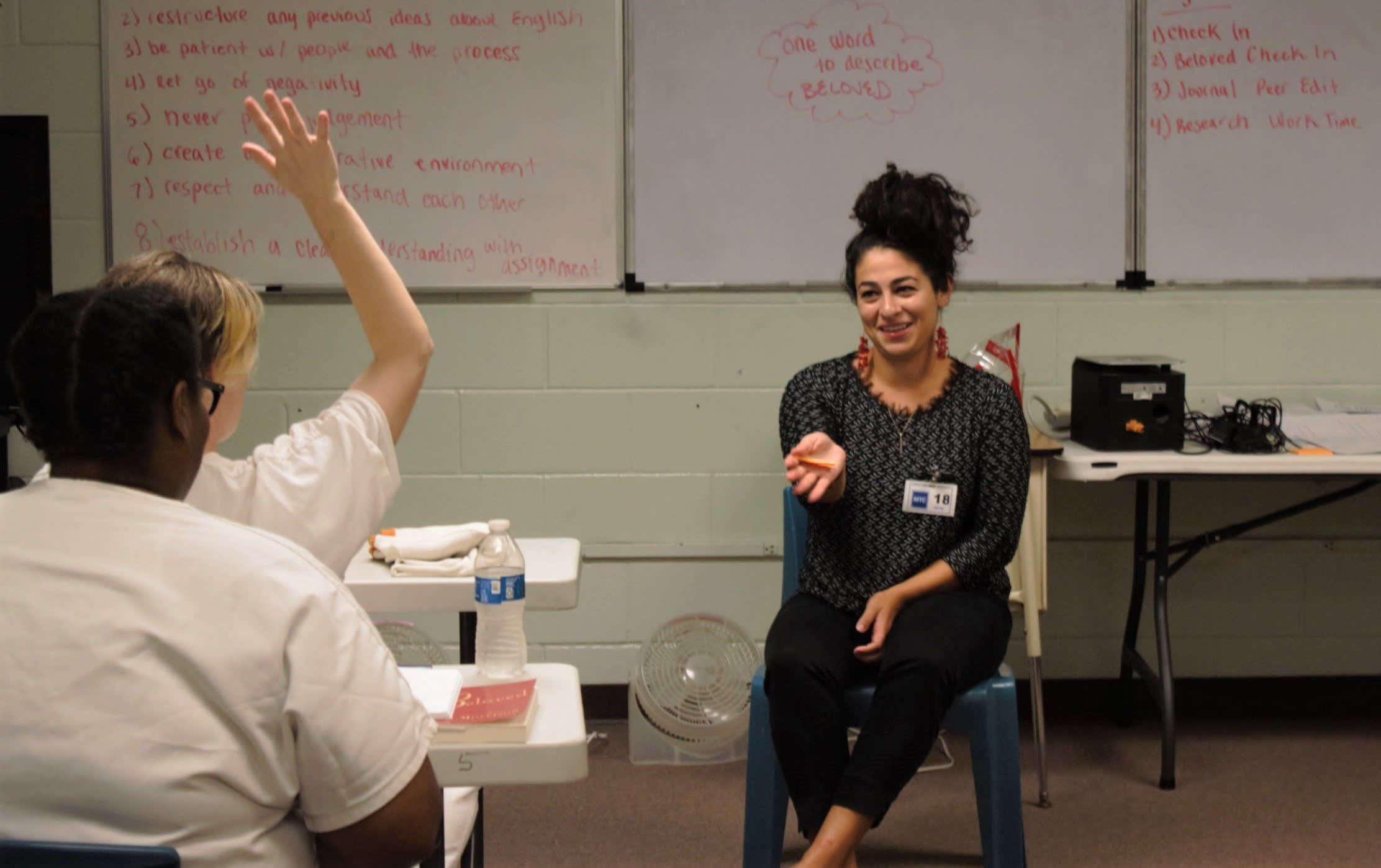This project is now in update mode. Check back regularly to see how things are progressing.
Texas Prison Education Initiative
Today, more than 155,000 adults are living behind bars in Texas prisons. That's more people than can fit into UT's Darrell K. Royal Texas Memorial Football Stadium (the 9th largest stadium in the world). With so many of our community members locked away, we need to make a change. College courses in the liberal arts provide a unique path for incarcerated students to understand themselves in relation to history, society, and culture, and act as a catalyst for transformation from prisoner to scholar.
We need your help to ensure that incarcerated students in Texas have access to the transformative power of education.
Our Project
The Texas Prison Education Initiative at The University of Texas at Austin was founded in 2017 to provide outstanding liberal arts education to Texans living behind bars in the Austin area. Since teaching our first class to just four students at Gardner Betts Juvenile Center here in Austin, we have expanded our program to Lockhart Women's Correctional Facility. We now serve more than 100 women at Lockhart each semester, and continue to teach small courses at Gardner Betts. Through a partnership with UT's University Extension, we offer UT-Austin courses, taught by UT-Austin faculty and graduate students, which earn students transferrable college credits that can be used toward an Associate's or Bachelor's degree.

Since 2018, we have:
- Enrolled 130 incarcerated students in college and pre-college courses
- Involved 45 UT-Austin faculty, staff, and graduate student volunteers
- Offered 7 credit-bearing courses
- Provided 6 non-credit extracurricular courses
- Ushered in 3 new cohorts of students through our college prep courses
- Remained steadfastly committed to 1 mission:To Transform Lives to the Benefit of Society
We could not have done any of this without the generous support of our donors, which is why we need your help.

We need to raise $15,000 in order to continue offering courses for the next year. While our program facilitators and instructors volunteer their time for free, we need your support to cover the costs of course fees, books, and materials. The more we raise through generous supporters like you, the more students we will serve.
Why College in Prison?

Texas has one of the highest rates of incarceration in the world, with more than 155,000 Texans currently serving sentences in state prisons and jails. More than 95% of those locked up will return to the community, where they'll face an uphill battle to secure employment and housing with a criminal record that lasts a lifetime.
With few credentials, little education, and diminished opportunities, those released from prison face a high risk of being rearrested and re-incarcerated. This revolving door is costly to individuals, their families, and our community.
We believe that higher education can disrupt the cycle of recidivism, and we aren't alone.

Evidence shows that prison education programs drastically reduce recidivism, making our community safer and changing the lives of formerly incarcerated folks and their families.
Nearly half a million children in Texas have a parent incarcerated in prison or jail. College in prison not only benefits the individual, it also has the power to lift up entire families.
When we provide college classes behind bars, we create opportunities for incarcerated students to transform from offenders into scholars; for children to see their parents as college students, not convicts; and for communities to welcome home positive role-models, not just parolees.
Higher education in prison isn't just a smart investment in our future; it has an immediate impact on the safety and well-being of prisoners, staff, and corrections officers living and working inside the facility. One study shows that prisoners who participate in college programs are 75% less likely to be cited for behavioral infractions than prisoners who aren't in college courses. This means a safer environment for everyone, including officers, staff, and volunteers.
$5
#GivingTuesday $5 Challenge
Already donated to our cause? Short on cash? Celebrate #GivingTuesday by chipping in just $5 to push us past our goal!
$250
Literary Luminary
Support the purchase of literature and fiction texts for classes
$1,000
Academic Activist
Ensures that instructors have the tools they need to succeed
$3,500
Course Champion
Cover the course fees, books, and material for an ENTIRE CLASS of 20 students! (Great for group and corporate donors!)






